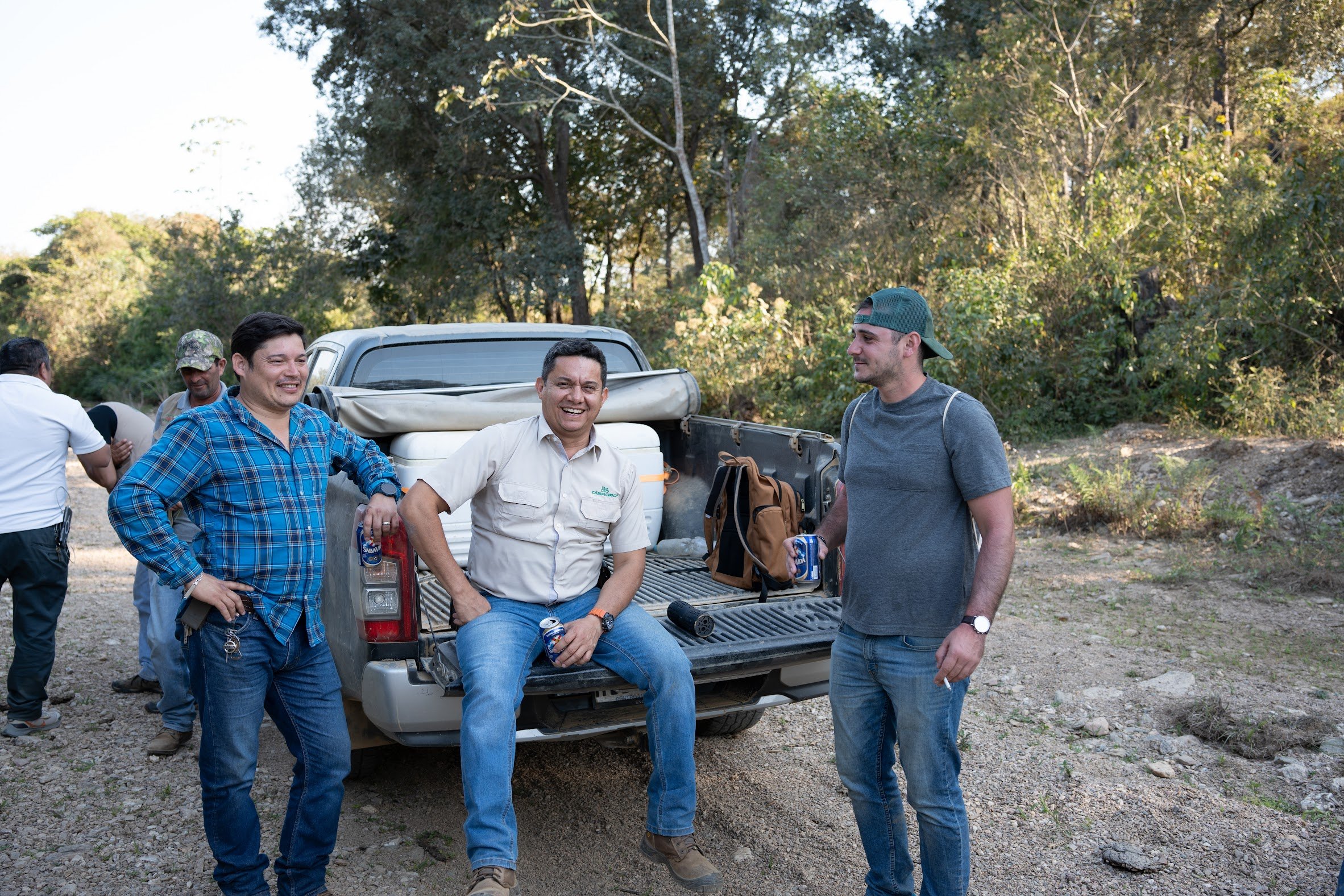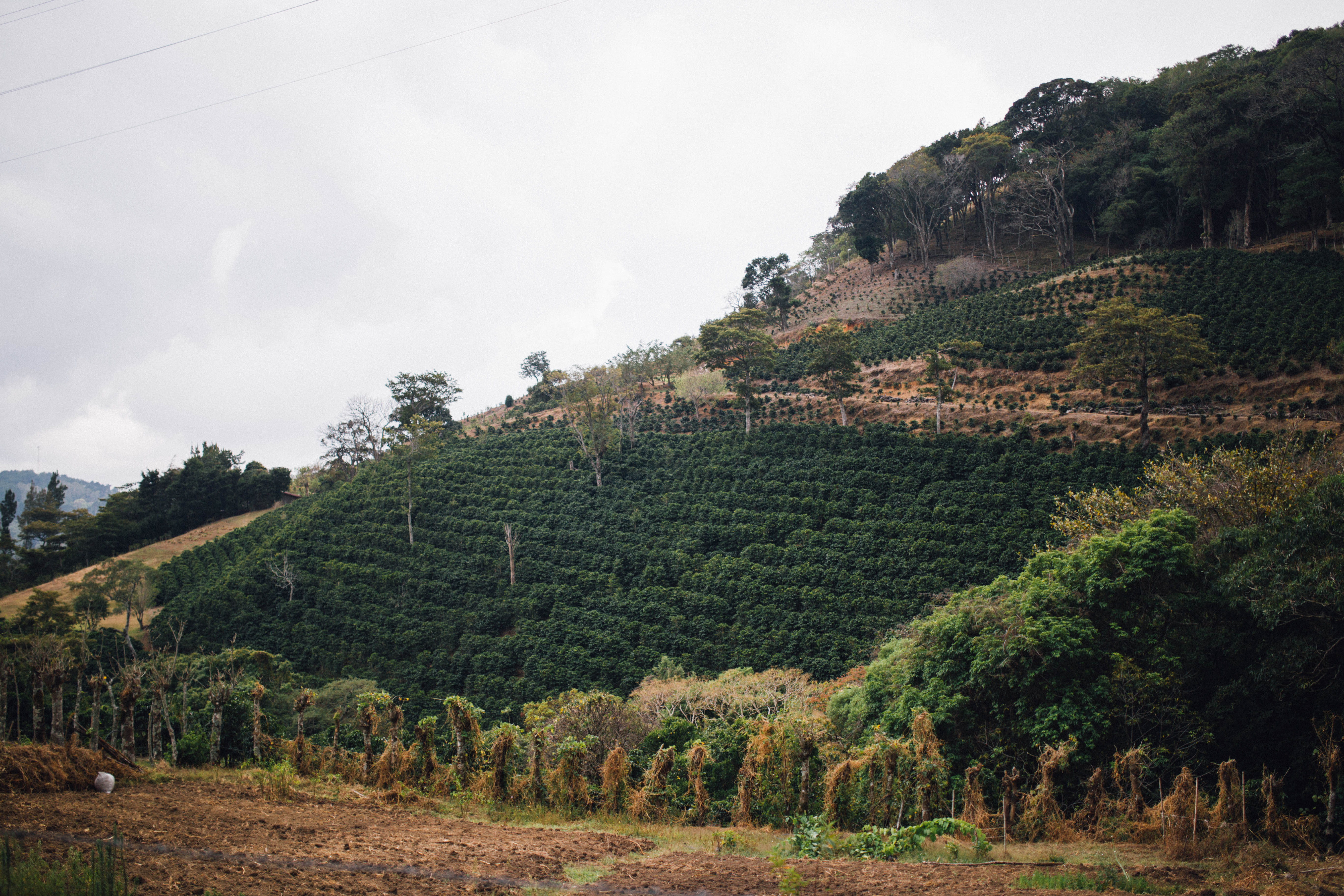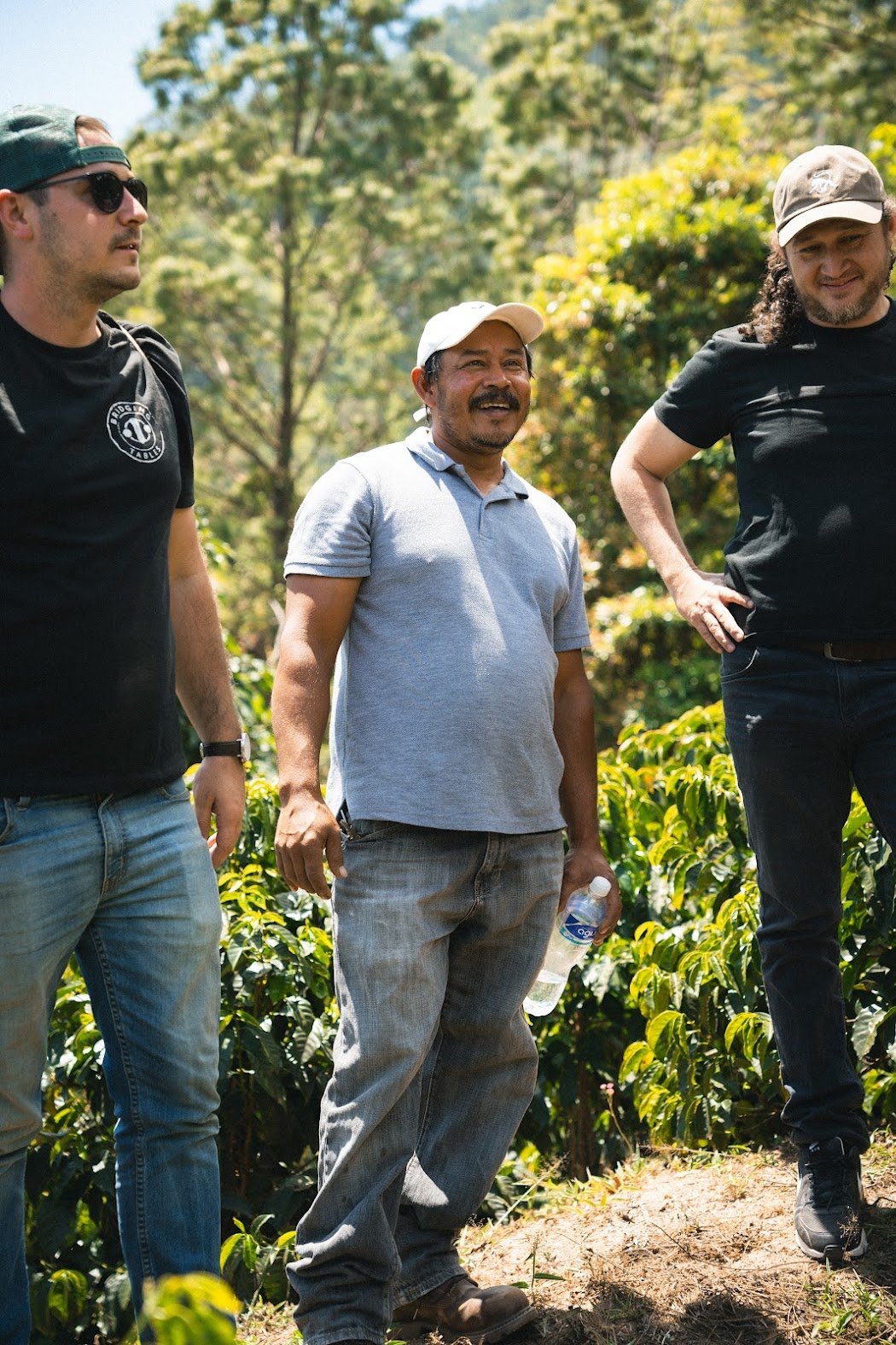At the Table
The True Meaning of Ethical Coffee Sourcing
The future of coffee sourcing
Beyond the Buzzwords
The term "ethically sourced coffee" appears everywhere—from packaging to marketing campaigns to industry panels. Yet the meaning has become increasingly diluted. Is it about certifications like Fair Trade and Rainforest Alliance? Is it about visiting farms once a year for photo opportunities? Or is it something deeper?
As coffee roasters with decades of experience, we've witnessed firsthand the lack of transparency, inaccessibility, and challenges partners face when it comes to fair coffee trade. The reality is that ethical sourcing encompasses multiple dimensions that go beyond simple certifications or buzzwords.
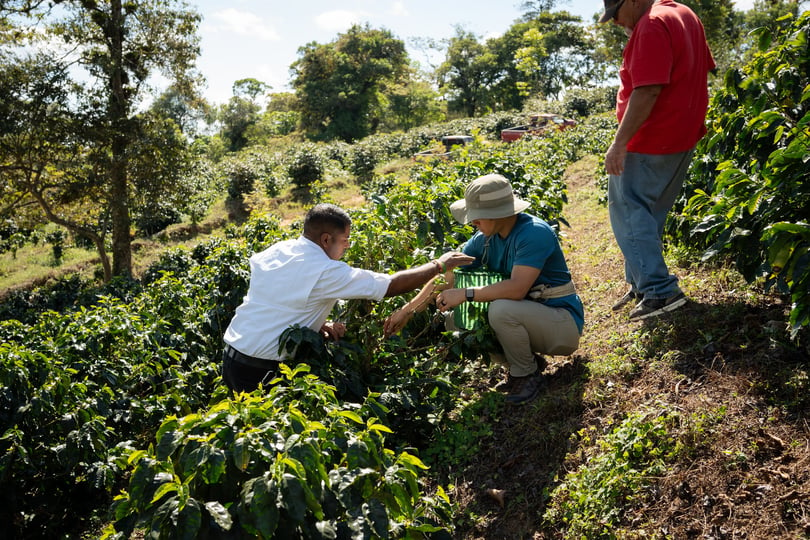
The True Cost of Coffee
Most smallholder producers have never met the roasters that end up with their coffee or tasted the final product that represents their hard work. They operate in a system where an external market dictates their prices regardless of their actual production costs.
Can you imagine if your roastery had to adjust its prices daily because a system detached from your business mechanics and true cost of goods told you to? Yet we accept this reality for farmers without question.
The result: margins remain razor-thin for producers who often adopt a "we'll take what we can get" mentality. In such conditions, there's little incentive to improve quality when market forces might erase those efforts the following year.
Producer-Led Pricing: A Paradigm Shift
Ethical sourcing begins with acknowledging that the current pricing model is fundamentally flawed. The traditional C-market pricing remains agnostic to the true cost of goods that individual producers incur during growing seasons.
As green coffee buyers, we need to engage in difficult but necessary conversations with producers. We should be asking if their business is profitable, if they're making enough to cover costs and sustain a livable wage, and if they can pay their workers fairly. These questions might feel uncomfortable at first, but they're essential for building truly ethical partnerships.
The responsibility falls on us as coffee buyers to set consumer expectations on price. When we're transparent about why quality coffee costs what it does, consumers trust our businesses more. A specialty coffee market thrives only when everyone profits.
Building Direct Trade Relationships That Last
One of the most powerful forms of ethical sourcing is establishing direct, long-term relationships with producers. These relationships should be built on consistent buying practices. Annual contracts should be viewed as mutual safeguards that ensure both buyer and supplier can maintain healthy businesses. By committing to consistent purchasing volumes, you provide producers with the stability they need to plan effectively and invest in their operations.
Smallholder producers often lack access to global markets. By creating direct channels, you eliminate unnecessary intermediaries that extract value without adding it. This ensures more of your coffee dollar reaches the hands that cultivated your beans.
Beyond purchasing coffee, consider how you can support producers in developing their own sales and marketing capabilities. This might include featuring their stories prominently in your marketing, providing feedback on cup quality and market preferences, or creating opportunities for them to connect with your customers.
While green coffee buyers aren't necessarily the best educators for coffee producers, we can support organizations dedicated to this purpose. Consider donating to organizations like Vuna or TechnoServe, or directly supporting your producers' educational opportunities with local agronomists.
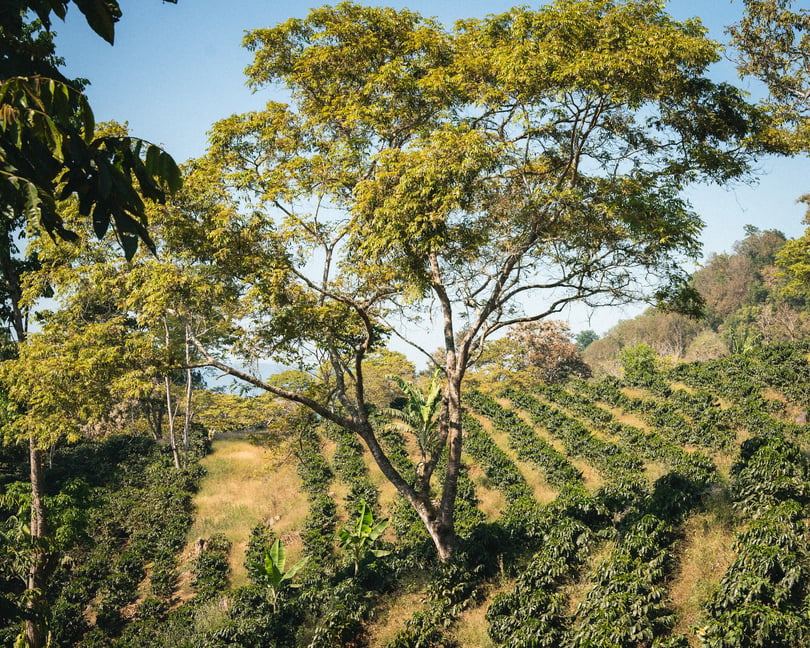
The Mutual Benefits of Ethical Sourcing
When done right, ethical sourcing creates a virtuous cycle of benefits. Producers gain stable, predictable income, long-term business viability, and resources to invest in quality improvements. Perhaps most importantly, they gain dignity and agency in their business relationships.
As roasters, we benefit from consistent quality, supply chain stability, and authentic stories to share with customers. There's also the immeasurable value of knowing your business practices align with your values—a sense of pride that comes from doing things the right way.
De-Risking Both Sides of the Partnership
For ethical sourcing to be sustainable, it must protect both sides of the relationship. This means transparent communication with clear expectations about quality, volume, and timelines. It requires fair contracts that account for the unpredictability of agricultural production. It involves sharing risk and recognizing that weather events, plant diseases, and other factors are beyond producer control. And it necessitates payment structures that respect the cash flow needs of producers.
Breaking Down Barriers
The specialty coffee industry has traditionally placed barriers between producers and roasters. At Bridging Tables, we believe in breaking down these barriers while protecting and de-risking both sides of the partnership.
This means facilitating direct communication between roasters and producers, providing translation services when language barriers exist, creating systems for efficient sample sharing and feedback, and building trust through consistent follow-through.
From Transactional to Relational
The difference between transactional and relational coffee buying is profound. The transactional approach focuses primarily on price, with annual renegotiations based on market conditions, limited communication, and interchangeable suppliers. In contrast, the relational approach emphasizes mutual success, long-term planning, regular and meaningful communication, and unique, irreplaceable partnerships.
The relational approach may require more investment of time and resources initially, but it yields tremendous benefits over time. It transforms coffee sourcing from a stressful annual negotiation into a collaborative partnership.
Taking the First Step
As a coffee roaster, you want to be proud of your relationships with producers. You want to tell authentic stories about your coffee's origin. And you want to build a business that contributes positively to everyone in the supply chain.
Ethical sourcing isn't just about doing the right thing—it's about building a more resilient, transparent, and sustainable coffee business. It's about replacing doubt and skepticism with confidence and pride.
The journey toward truly ethical sourcing begins with a single conversation—one where both parties openly discuss their needs, challenges, and visions for the future. From there, you can build a relationship that transcends the typical buyer-seller dynamic and becomes a genuine partnership.
Your Path to Ethical Sourcing
Ready to transform your approach to coffee sourcing? Here's how to get started: Browse the marketplace to explore participating coffee farmers looking for direct trade relationships. Order samples to connect with farmers whose coffee profiles match your needs. Then build the relationship based on transparency, fair pricing, and mutual respect.
At Bridging Tables, we've created a marketplace that connects coffee roasters and coffee farmers so you can stop worrying about finding a direct trade partner you can trust and get back to growing your business.
Take the first step today. Your perfect coffee partner is waiting.
---
*Ready to begin your journey toward proud coffee partnerships? Visit Bridging Tables to explore our marketplace of verified coffee farmers and take the first step toward transparent, direct trade relationships.*
Understanding Single Origin Coffee
The True Meaning of Ethical Coffee Sourcing
"Bridging Tables is doing outstanding work in the specialty coffee space—directly connecting roasters with exceptional green coffee producers. When we decided to bring in one of their offerings, they facilitated a direct introduction to the producer family, and now we have standing invitations to visit one another. It’s clear the farmers are being paid fairly, and in such a volatile market, the level of price transparency is a real relief."

